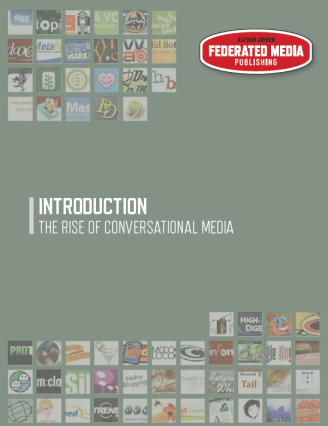
Over at the
FM blog, I just posted the draft agenda for the first of five conferences I’ll be chairing as part of my day job at Federated Media.
Signal San Francisco is a one-day event (March 21) focused on the theme of integrating digital marketing across large platforms (what I’ve called “dependent web” properties) and the Independent Web. The two are deeply connected, as I’ve written
here. As we explore that “interdependency,” we’ll also be talking about some of the most heated topics in media today: the role of mobile, the rise of brand-driven content, the impact of real-time bidded exchanges, and more.
Signal builds on the format I spent almost a decade crafting at the Web 2 Summit – the “high order bit,” or short, impactful presentation, as well as case studies and deeper-dive one-on-one interviews with industry leaders. Those include Jeff Weiner, CEO of LinkedIn, Adam Bain, President of Revenue at Twitter, Neal Mohan, who leads Google’s ad products, and Ross Levinsohn, who runs Yahoo! Americas, among others.
Others represented include Instagram, AKQA, Babycenter, Intel, Tumblr, WordPress, ShareThis, Facebook, and many more. I hope you’ll consider registering (the earlybird expires next week), and joining me for what’s certain to be a great conversation.





 Over at the
Over at the 